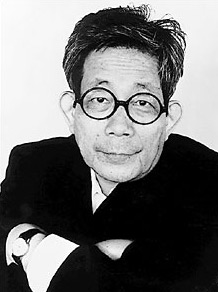|
|
|
|
Kenzaburo
Oe
|
|
| Kenzaburo
Oe is a novelist whose works express the disillusionment and rebellion of
his post-World War II generation. His stories often revolve around marginal
people and outcasts, isolated from mainstream society. As in the works of
a number of other Japanese writers, Oe writes of the conflict between Japanese
traditions and modern Western culture.
Oe was born in 1935 on the island of Shikoku. At age 18, he left his remote village and traveled to the capital, where he studied at Tokyo University, where he began to write. In 1958 he won the Akutagawa Prize for a short story and published his first novel, Nip the Buds, Shoot the Kids. The birth of his severely brain-damaged son in 1963 marked a turning point in his life and work. His best known novel, A Personal Matter, deals with a father's painful acceptance of his handicapped infant son. In life, he and his wife have devoted much of their lives to their son's care. Oe's other works include more than 20 novels, including The Silent Cry, The Pinch Runner Memorandum, and A Quiet Life. He has written several short-story collections and essays, including Hiroshima Notes, that chronicles the courage of the victims of the nuclear attack. Oe was awarded the Nobel Prize for Literature in 1994. His 2000 novel Somersault is the tale of a terrorist religious cult and its charismatic leader. His son, Hikari Oe, although initially uncommunicative and still only minimally functional, has developed impressive musical abilities and is an accomplished composer. |
 |